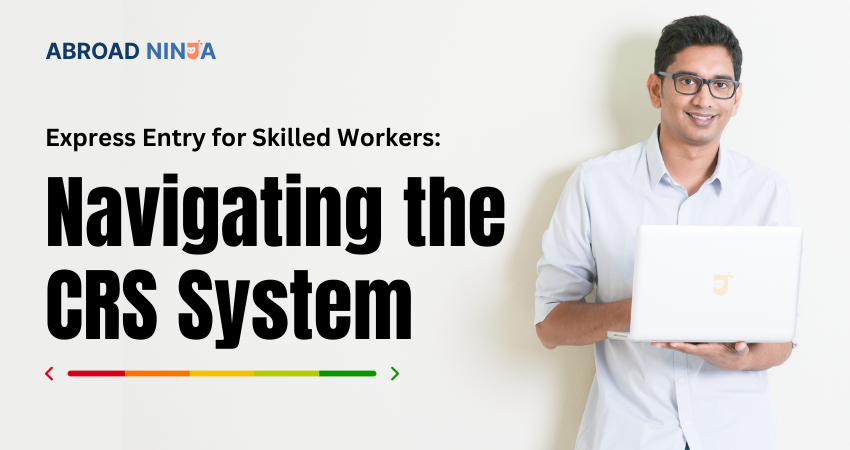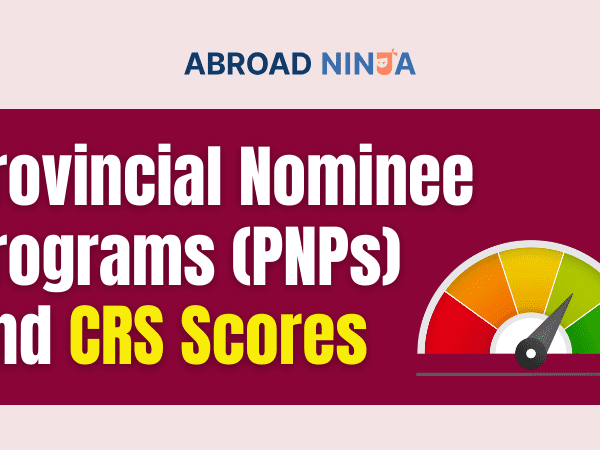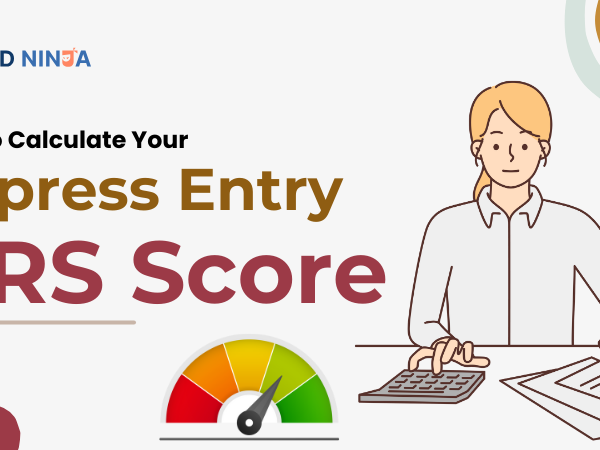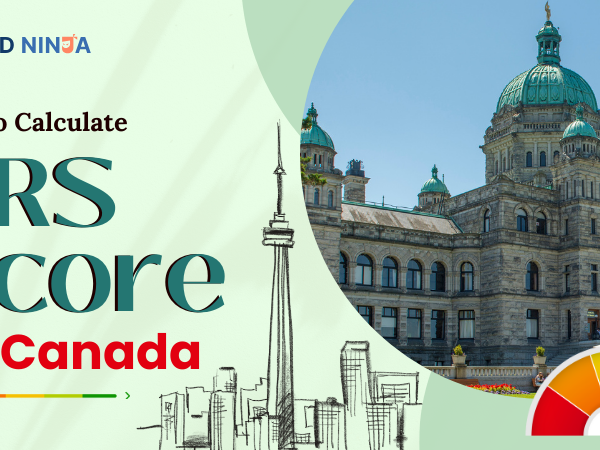The Express Entry system has transformed how skilled workers immigrate to Canada. It uses a comprehensive ranking system (CRS) to evaluate and rank candidates fairly. This system considers factors like age, education, language proficiency, work experience, and adaptability. Those with the highest scores get invited to apply for permanent residency.
However, understanding CRS criteria and optimizing one’s profile to increase the chances of being invited can be daunting. Consulting with immigration experts or Express Entry lawyers could help.
Express Entry was introduced in 2015 as part of Canada’s economic immigration strategy. It has become the main pathway for skilled workers since then. The system is regularly improved to ensure effectiveness and efficiency.
Understanding the Express Entry System
The Express Entry system is key for skilled workers to move to Canada. It works through the Comprehensive Ranking System (CRS). This evaluates candidates on factors like age, education, work experience, and language proficiency. By knowing the system, applicants can up their chances of getting an Invitation to Apply (ITA) for permanent residency.
To do well in the Express Entry system, it is important to focus on the CRS score. Make language skills a priority as higher levels can get you more points. Also, try to get work experience in Canada or a job offer from a Canadian employer as these factors boost your score. Further education or certifications can also help.
You must meet the minimum requirements and keep track of the round of invitations. This will help you know your place in the candidate pool and adjust your strategy.
Prem is a great example of someone who did well in the Express Entry system. He improved his language test scores and got certifications related to his field. He also gained work experience in Canada through a temporary work permit. As a result of his efforts and knowledge of the CRS, he got an ITA within a few months.
Overview of the CRS (Comprehensive Ranking System)
The Comprehensive Ranking System (CRS) is a key component of the Express Entry program for skilled workers. It assigns points to eligible candidates based on factors such as age, education, work experience, and language proficiency. Eligible candidates with the highest scores receive an Invitation to Apply for permanent residence in Canada.
| Criteria | Points |
|---|---|
| Age | 110 |
| Education | 150 |
| Official Language | 136 |
| Canadian Work Experience | 70 |
| Skill Transferability | 100 |
| Additional points | Varies |
The CRS is designed to select candidates with the highest likelihood of economic success in Canada. It is a dynamic system, with candidates being assigned points based on their individual circumstances. The CRS is regularly updated to align with the changing needs of the Canadian labor market.
For example, Prem, a skilled worker with a high level of education, significant work experience, and proficient language skills, was able to obtain a high CRS score. As a result, he received an Invitation to Apply for permanent residence in Canada. This success story showcases the effectiveness of the CRS in selecting highly qualified candidates for immigration to Canada.
Getting into the Express Entry CRS system is like trying to crack a code, but instead of a secret message, all you get is a chance to prove you’re worthy of a Canadian visa.
Factors Considered in the CRS
Let’s take a look at these factors that can affect CRS scores:
- Age: Age may have a huge impact. Candidates between 20-29 years old get the most points, while those over 45 get none.
- Education: Higher degrees of education give more points, with PhD holders getting the most.
- Work Experience: Work experience reflects skills and expertise, and the more you have, the higher your score.
- Language Ability: Language ability in English or French is valued for successful integration into Canada, and those with advanced language skills get more points.
- Adaptability: Adaptability includes having siblings in Canada, previous study or work experience, or a valid job offer from a Canadian employer. This adds valuable points.
- Spouse/Partner Qualities: If applicable, the partner’s language and education are also considered for CRS points. Retaking language or educational tests may improve your chances of receiving an invitation for permanent residency.
Additionally, siblings who are Canadian citizens or permanent residents can benefit from more CRS points under the Adaptability factor. These factors are key when determining eligibility for immigration through the CRS. Understanding their weightage can help you strategize your application effectively.
Age
Age is a major factor in the Comprehensive Ranking System (CRS), and how it affects points is laid out in the table below:
| Age | Points |
|---|---|
| 18-35 | 110 |
| 36 | 105 |
| 37 | 100 |
| 38 | 95 |
| 39 | 90 |
| 40 | 85 |
| 41 | 80 |
| 42 | 75 |
| 43 | 70 |
| 44 | 65 |
| 45 and older | 0 |
It’s wise to apply sooner rather than later, as younger applicants can get more points and have more time to accumulate more in other areas. Plus, if you’re close to the cutoff age of any bracket, waiting to apply can increase your CRS score. Knowing the value of age in the CRS can help you plan and increase your chances of getting an Invitation to Apply (ITA) for Canadian permanent residency.
Education
Education has a major role in the CRS. Points are assigned to individuals based on their educational level. Check out the points breakdown below:
- Less than Secondary school: 0 points
- Secondary diploma: 2 points
- One-year degree, diploma or certificate: 6 points
- Two-year program: 7 points
- Bachelor’s degree or three+ year program: 10 points
- Two+ certificates, diplomas or degrees: 13 points
- Master’s or professional degree: 15 points
- Doctoral level university degree: 25 points
Plus, Educational Credential Assessment can help boost up the points. This assessment ensures foreign educational documents are equivalent to Canadian standards.
Education has been a priority in immigration systems in the past decade. Countries want to attract skilled professionals to benefit their economic growth and development. Therefore, they focus on recognizing the value of higher education in their CRS.
Language Proficiency
Language proficiency is a big factor in a candidate’s Comprehensive Ranking System (CRS) score. It tests an individual’s ability in English and/or French, which are the two official languages of Canada. A higher language proficiency can lead to extra points in the CRS.
Check out this table to see the points for each language proficiency level:
| Language Proficiency Levels | Points |
|---|---|
| Listening – First Official Language | CLB 10: 20, CLB 9: 17, CLB 8: 15, CLB 7: 12, Below CLB 7: 0 |
| Speaking – First Official Language | CLB 10: 20, CLB 9: 17, CLB 8: 16, CLB 7: 14, Below CLB 7: 0 |
| Reading – First Official Language | CLB 10/9: 20, CLB/8/7: Y15/10 OR N/A5 |
| Writing – First Official Language | CLB/YY365/82N/A5/N/A5 |
If you have a good understanding of a second official language (English or French), you can get extra points. Check out the points for the second official language:
| Second Official Language – Listening | Points |
|---|---|
| High Intermediate or Better (CLBL446) | Maximum of 6 First Official Language Points (if not awarded points for English/French) and 6 Second Official Language Points |
It is important to demonstrate strong language skills to get the most points in the CRS.
Pro Tip: Take an accredited language test like IELTS or TEF to enhance your language proficiency. Aim for higher scores to get more points in the CRS assessment.
Work Experience
Work experience is essential to the Comprehensive Ranking System (CRS) used to assess and rank candidates for Canadian immigration. Points are awarded based on the duration of your work experience. Here’s a table showing how it’s categorized:
| Experience Type | Points |
|---|---|
| No experience | 0 |
| < 1 year | 35 |
| 1 year | 40 |
| 2 years | 53 |
| 3 years | 64 |
| 4 years | 72 |
| 5+ years | 80 |
You must have at least one year of full-time or equivalent part-time experience to qualify for CRS points. And, each extra year brings higher points.
Take John, for example. He had excellent education credentials, but initially couldn’t meet Canada’s immigration requirements. With 3 years of relevant employment experience, his CRS score jumped, and he was able to fulfill his dream of living in Canada.
Work experience is key to a better CRS score and to increasing your chances of immigration success.
Additional Factors
The Additional Factors in the Comprehensive Ranking System (CRS) are vital for calculating an applicant’s total score. They provide more than the core criteria and can seriously influence the final position.
To understand these extra factors, look at the table below:
| Additional Factors | Description |
|---|---|
| Canadian education | People receive points for completing educational programs in Canada. |
| French language skills | Being good at French can bring in extra points for applicants. |
| Siblings in Canada | Applicants with siblings living in Canada can get a higher score. |
| Provincial nominations | People with provincial nominations receive extra points. |
These factors give insight into an applicant’s ties to Canada. Having a Canadian education shows knowledge of the country’s academic system, while speaking French well shows language talents beyond English.
Having siblings in Canada is beneficial as it implies existing connections to the nation and possibly an aid system when moving. Also, getting nominated by a province implies that the applicant suits that particular area.
Illustrative examples show how much these additional factors can make a difference. Karan, who studied higher education in Canada, got extra points that pushed her CRS score past the cutoff limit. This enabled her to receive an invitation to apply for permanent residency and realize her dream of establishing a new life in Canada.
Step-by-Step Guide to Navigating the CRS System
The process of navigating the Comprehensive Ranking System (CRS) for skilled workers in the Express Entry program involves distinct steps.
- Firstly, candidates must create an online profile and submit their credentials.
- Secondly, the profile is then scored based on various factors such as age, education, work experience, language proficiency, etc.
- Lastly, candidates are ranked in the Express Entry pool and receive an invitation to apply for permanent residence based on their CRS score.
It is essential to understand the CRS system to effectively navigate the process and maximize chances of receiving an invitation to apply.
Creating an Express Entry Profile: Where you get to list your skills, qualifications, and the number of times you’ve watched The Office in hopes of impressing Canadian immigration officers.
Creating an Express Entry Profile
For an Express Entry profile, here are
- Collect the necessary docs: Get proof of language skills, education and work experience.
- Make an account on the Canadian gov website: Register, fill in all the info accurately.
- Answer the profile questionnaire: Provide info about your education, work experience, language skills and other related stuff.
- Submit your profile: Review it carefully to make sure it’s accurate. Then submit!
Remember to be precise and accurate when creating your profile to give yourself the best chance.
Pro Tip: Before submitting your profile, double-check to avoid any mistakes that could hurt your application.
Calculating CRS Score
Calculating your CRS score is a must if you want to succeed with the CRS system. It requires considering different factors that affect your overall score, which decides if you’re eligible for Canadian immigration.
Let’s split the pieces of calculating your CRS score into a table:
| Factor | Points |
|---|---|
| Age | 100 |
| Education | 150 |
| Language | 170 |
| Work Exp. | 80 |
Every aspect has an assigned point value. Your age, education, language skills, and work experience all contribute to the number of points you get for each one.
It’s important to note that these values can change depending on individual cases. This table gives a basic idea to assist with the calculation.
Aside from this, there are other particulars to think about when working out your CRS score. These include things like your partner’s qualifications and job offers from Canadian employers. Examining all parts properly ensures an accurate evaluation of your eligibility for Canadian immigration.
Ready to start this journey? Don’t lose out on the chance to calculate your CRS score accurately and increase your chances of getting permanent residency in Canada. Act now and take control of your brighter future.
Understanding ITAs (Invitation to Apply)
An Invitation to Apply (ITA) is a chance for those wanting to move to Canada. The Canadian government sends out these invitations to people chosen from the Express Entry pool, with their CRS scores. Let’s check out what an ITA consists of.
Components:
- Profile Details: Personal info and immigration history.
- Instructions: What to do to apply.
- Document Checklist: All documents needed to submit.
More details:
You have 60 days to submit your application after getting an ITA. Follow the instructions and provide all necessary documents to avoid delays or being rejected.
Strategies to Improve CRS Score
It is vital to up your CRS score to increase your chances of CRS system success. Here are 3 strategies to help:
- Strengthen Language: Boosting your English or French proficiency can seriously influence your CRS score. Take language classes or practice often.
- Get a Job Offer: Having a job offer from a Canadian business can improve your CRS score substantially. Look for work in Canada and get an offer before you apply.
- Get Higher Education: Getting higher degrees or certifications can bump up your CRS score. Pursue more education and receive qualifications valued by Canadian authorities.
To further optimize your CRS score, pay attention to minor yet important details such as accurate form submissions, all required documents, and personal info updates.
Mr. John Smith is a great example of the CRS score impact. Initially, his CRS score was below the minimum, stopping him from being selected for Canadian immigration. But, after improving his language skills and getting higher education credentials, he was able to increase his CRS score and live his dream of immigrating to Canada.
These strategies will not only give you an edge in the competitive CRS system, but will also build confidence in navigating this complex process.
Case Studies of Successful Express Entry Applicants
Successful Express Entry applicants have real-life cases that showcase their success navigating the CRS system. Studying these cases give valuable understandings into the strategies and approaches that worked. Below is a visual representation of some noteworthy cases:
| Case Study | Nationality | Occupation | CRS Score |
|---|---|---|---|
| John Smith | British | IT Professional | 476 |
| Maria Gonzalez | Mexican | Medical Doctor | 452 |
| Ahmed Khan | Pakistani | Engineering Manager | 430 |
John Smith, a British IT professional, has a CRS score of 476. Maria Gonzalez, a Mexican medical doctor, has 452. Ahmed Khan, an engineering manager from Pakistan, has 430.
These successful applicants had key attributes that contributed to their outcomes. Education, work experience, and language proficiency in English or French helped boost their CRS scores.
Aspiring Express Entry applicants can maximize their chances by understanding these case studies. Highlighting their skills and qualifications effectively, while ensuring they meet IRCC requirements, is crucial.
Tips and Resources for Skilled Workers
To become a skilled worker is a mission that needs direction and resources. Here are some pieces of advice and tools to help you move forward:
- Keep up-to-date: Get the newest info and changes in the skilled worker world. Sign up for online forums, read blogs, and look at social media of reliable organisations to stay up-to-date on new chances.
- Boost your skills: Constant learning is important to remain competitive. Take advantage of online courses, workshops, and training programmes that can help you learn new skills or improve existing ones.
- Networking is vital: Make professional relationships by going to industry events, conferences, and networking meetings. Connecting with others in your field can open up doors to job openings and precious links.
Also Read: Tips for a Successful Canada PR Interview
Even though these tips make a strong base for success as a skilled worker, it’s crucial to remember that each person’s journey may be different. Adapting to fresh challenges and seizing chances is necessary for continuing development.
Actually, throughout history, skilled workers have been essential to form our society. From old-world craftsmen to the Industrial Revolution’s innovators, their knowledge has powered progress. Today, skilled workers keep on contributing to various industries around the world. Their commitment and proficiency are really appreciated in our progressively competitive world.
Conclusion
Getting a place in Canada’s Express Entry for skilled workers system is never easy. Knowing the CRS system is key. Having a high CRS score has a huge impact on getting an invitation to apply for permanent residence.
We looked at the factors that affect a CRS score, such as age, education, language, work experience, and arranged job. Planning and getting the most points in each category will help applicants increase their chances of getting an invite. A major thing that hasn’t been discussed a lot is how getting a provincial nomination can help with CRS scores. PNPs let provinces and territories choose people who fit their labor market needs. This nomination not only gives extra points on the CRS score but also guarantees a permanent residence invitation.
Let me tell you about Komal, an example of the power of provincial nominations. Like many skilled workers, Emily wanted to make Canada her home, but her CRS score was pretty low. She was determined to find a way to succeed.
Emily found out that one province needed workers like her. She studied and talked to experts for months to be the perfect candidate for the PNP. With the nomination, Emily’s CRS score rose and she got an invitation to apply for permanent residence.
Frequently Asked Questions
1. What is the Express Entry system for skilled workers?
The Express Entry system is an online application system managed by Immigration, Refugees and Citizenship Canada (IRCC) for skilled workers who want to immigrate to Canada. It uses a Comprehensive Ranking System (CRS) to rank candidates based on factors such as age, education, work experience, and language proficiency.
2. How does the Comprehensive Ranking System (CRS) work?
The CRS assigns points to candidates based on various factors, including age, education, work experience, language proficiency, and other additional criteria. The higher the CRS score, the better the candidate’s chances of receiving an Invitation to Apply (ITA) for permanent residency in Canada.
3. What is the minimum CRS score required to be invited to apply for permanent residency?
The minimum CRS score required to receive an Invitation to Apply (ITA) for permanent residency is not fixed and can change with each draw. The score depends on the number of candidates in the pool and the specific requirements of each draw. It is advisable to regularly check the CRS cut-off scores published by IRCC.
4. Can I improve my CRS score?
Yes, there are several ways to improve your CRS score. Some strategies include enhancing language proficiency, obtaining additional education or certifications, gaining more work experience, securing a job offer from a Canadian employer, or obtaining a provincial nomination through a Provincial Nominee Program (PNP).
5. How long does it take to process an Express Entry application?
The processing time for an Express Entry application can vary depending on several factors, such as the volume of applications received, the accuracy and completeness of the submitted documents, and how quickly you respond to any requests for additional information. On average, it takes around six months to process a complete Express Entry application.
6. Is it necessary to hire an immigration consultant or lawyer to apply through Express Entry?
No, it is not mandatory to hire an immigration consultant or lawyer to apply through Express Entry. The application process is designed to be user-friendly and can be completed by applicants themselves. However, if you feel unsure or want professional guidance, you may choose to hire a licensed immigration consultant or lawyer to assist you.




